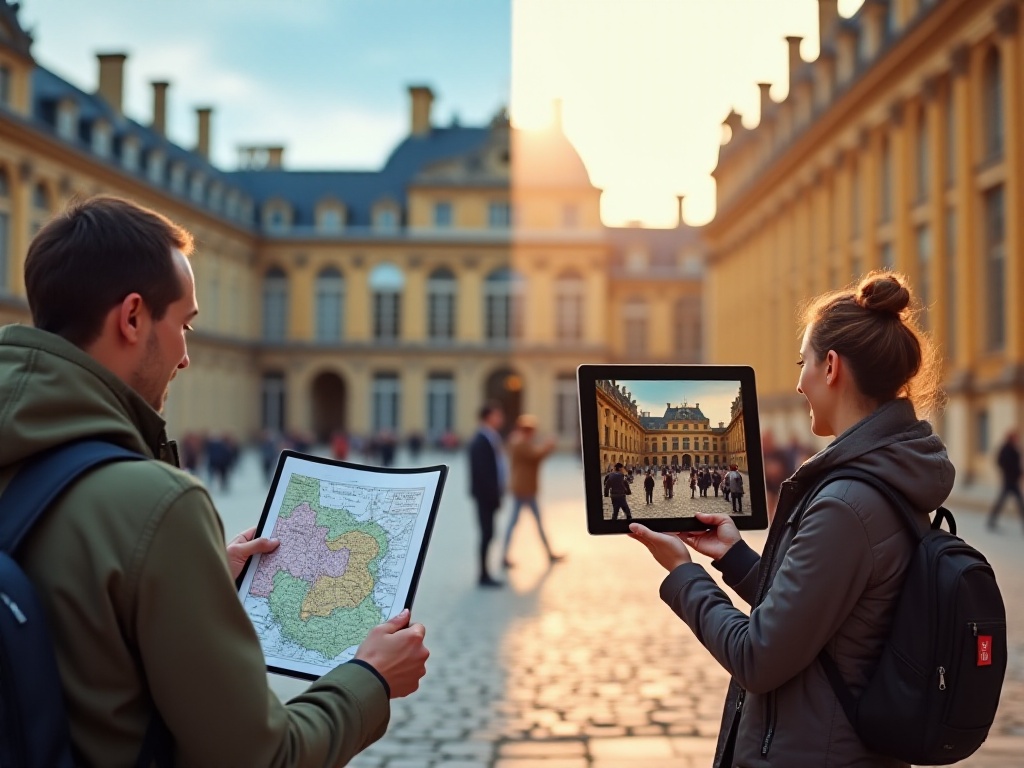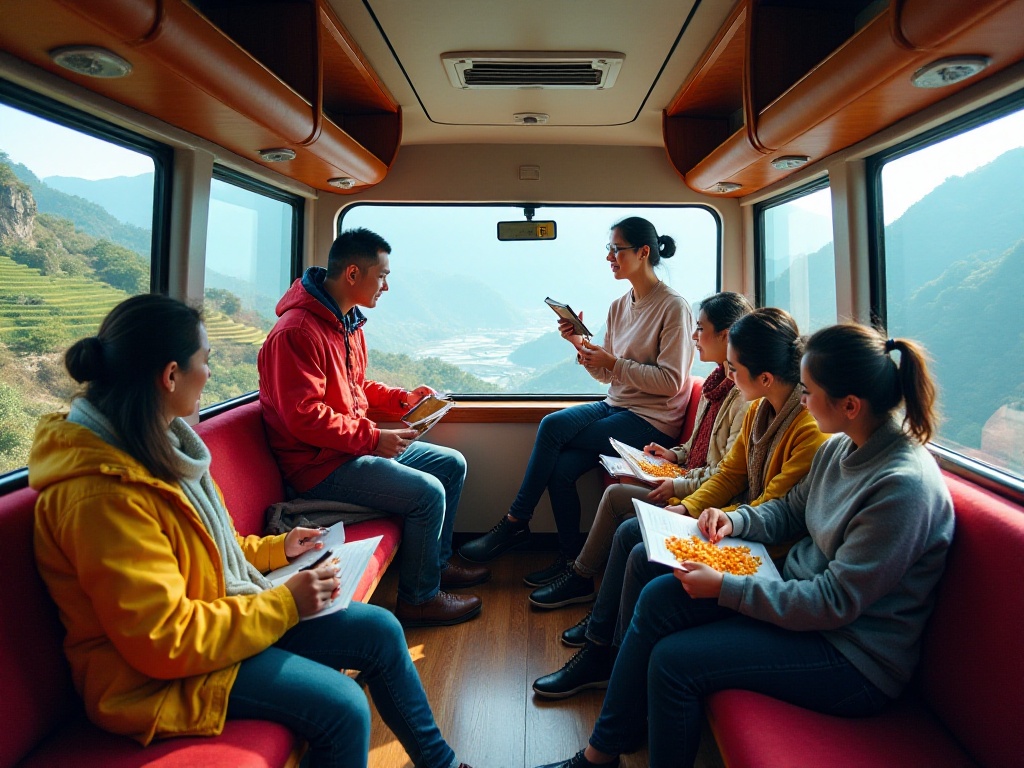Opening
I still remember last summer when I officially became a licensed tour guide. The moment I received my tour guide license, I was so excited I almost jumped up, as this was a major turning point in my life. In the blink of an eye, I've led nearly 30 tours, traveling across the country. These six months of experience have given me a completely new understanding of the tourism industry.
To be honest, I was incredibly nervous when I first started leading tours. I remember my first tour to Yunnan - my palms were sweating while explaining about the Jade Dragon Snow Mountain to everyone. Looking back now, those anxious feelings have become a precious memory. Over these six months, I've experienced so many interesting and frustrating things, which I'd like to share with everyone today.
Types of Tours
If you think leading tours is just simply taking tourists around, you couldn't be more wrong. Today's group tour products are incredibly diverse, with each type having its own unique characteristics. Just talking about the types of tours I've led could take an entire day.
Regular tours are the type I handle most often - the traditional model where tour guides hold up small flags and tourists follow along. Though called "regular," these tours are anything but ordinary nowadays. Global destination guided tours alone offer over 200 different routes across more than 80 countries.
As a guide, you need to be thoroughly familiar with each destination's history, culture, geography, climate, and folk customs. Sometimes tourists ask casual questions like "Why was this building designed this way?" or "What do locals usually eat?" and you need to have answers ready. I spend time every night before bed studying various topics, afraid of being caught off guard.
Theme tours are my personal favorite to lead. Once I led an adventure tour with all young people to a primitive village in the mountains of Guizhou. We stayed in stilt houses at night, gathered around a bonfire singing songs and sharing life stories. One girl even played guitar and sang folk songs - that kind of atmosphere was really special.
Another time I led a photography tour, spending the whole trip accompanying photography enthusiasts chasing light and shadow. To catch the sunrise, we had to wake up at three in the morning and climb to the mountaintop to wait. Though tiring, when we saw the first rays of sunlight break through, all the fatigue was worth it.
Family tours are also quite unique. Leading a group of lively and adorable children requires both ensuring safety and making learning fun - it's quite a skilled job. I prepare some small games and knowledge quizzes to let children learn while playing. Seeing the children's innocent smiles makes all the effort worthwhile.
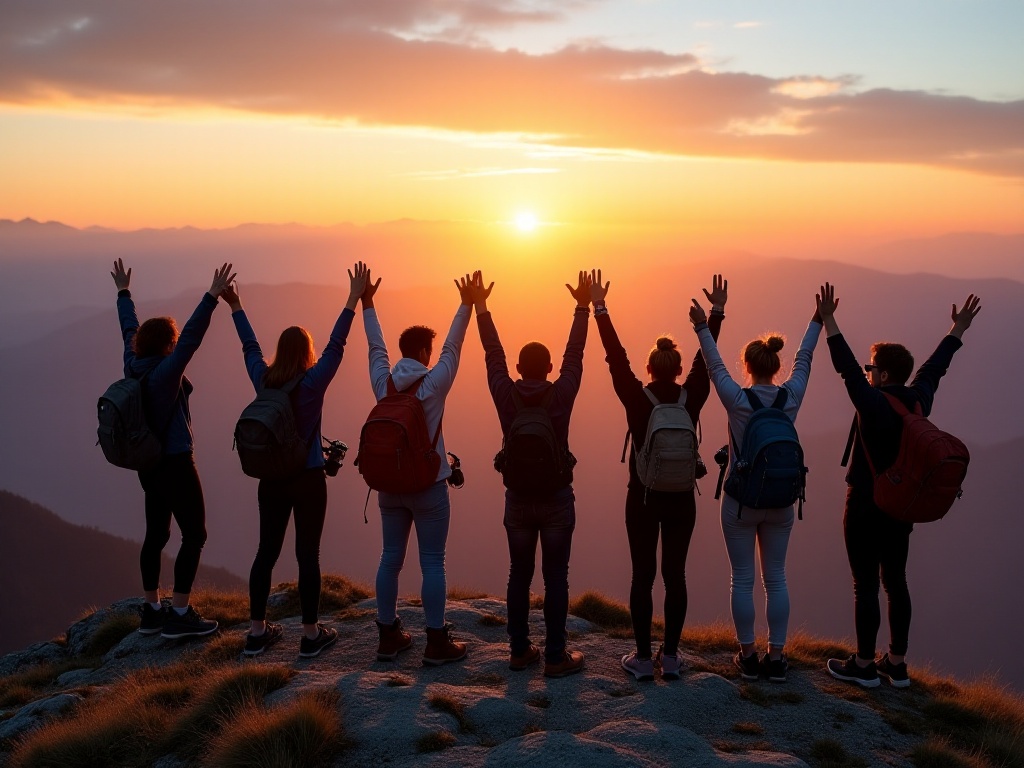
Current Industry Status
To be honest, competition in the tourism industry is really intense now. As guides, we're no longer just traditional "scenic spot narrators." Besides mastering various cultural histories, we need to know how to adjust group atmosphere and handle emergencies. The work intensity is very high every day - sometimes after finishing a tour, my voice is almost gone.
I remember once when two tourists got into an argument over photo-taking positions. While it seemed like a small matter on the surface, if not handled well, it could easily affect the whole group's atmosphere. I immediately stepped in to mediate, both calming emotions and finding better photo angles. In the end, not only was the conflict resolved, but the two tourists became friends.
The importance of professional guides is becoming increasingly prominent. Today's tourists are very "savvy" - they not only expect guides to explain scenic spots but also hope for deeper cultural experiences. I often tell local folk stories or food histories during the drive between attractions.
For example, when visiting Xi'an, I'll tell stories about daily life during the prosperous Tang Dynasty, making tourists feel like they've traveled back in time; when visiting Yunnan, I'll introduce minority wedding customs, letting everyone understand different ways of life. These contents often interest tourists more than simple scenic spot introductions.
Today's guides must be "all-rounders." Photography skills are basic, as tourists always hope to take good photos for social media. I also need to know some first aid in case tourists feel unwell. Even psychological counseling skills are necessary, as we often encounter anxious tourists.
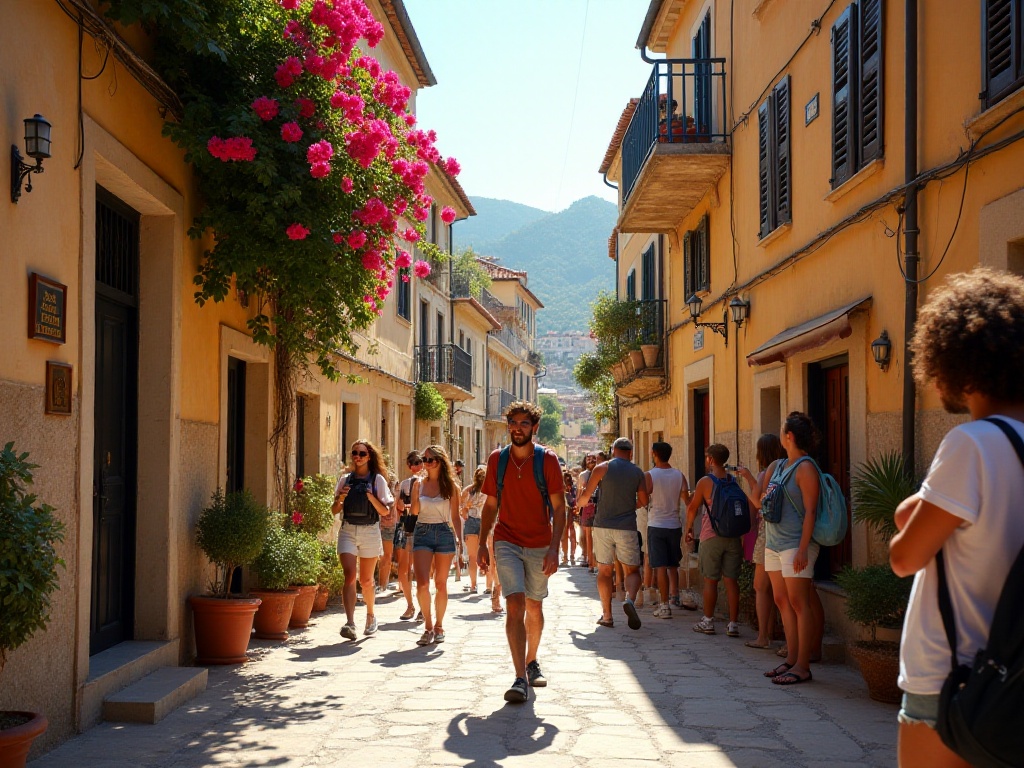
Itinerary Planning
Speaking of itinerary planning, it's a major undertaking. Travel agencies now promote "one-stop service": everything from airport pickup to accommodation, from meals to attraction tickets, all packaged together. Sounds great, right? But the workload behind it is substantial.
Before each tour, I have to do extensive preparation work. I need to repeatedly confirm bookings with hotels and restaurants, while constantly monitoring weather changes to adjust itineraries. The most dramatic time was when sudden heavy rain forced me to rearrange accommodation and the next day's itinerary for over 20 people in just one hour. In such situations, decisive decision-making and adaptability are especially important.
The most challenging aspect of itinerary planning is balancing various needs. Some tourists prefer taking photos, some prefer listening to explanations, while others want more free time. Figuring out how to allocate time to satisfy everyone requires strong coordination skills.
I now make it a habit to briefly communicate with everyone before each day's itinerary begins, checking if there are any special needs. This not only helps identify potential issues early but also makes tourists feel more valued.
Meal arrangements are also technically demanding. We need to consider different regional dietary habits and accommodate tourists with special needs. For example, some people can't eat spicy food, some are vegetarians - all these need to be communicated with restaurants in advance. I now keep phone numbers of reliable restaurants across the country in my phone for unexpected situations.
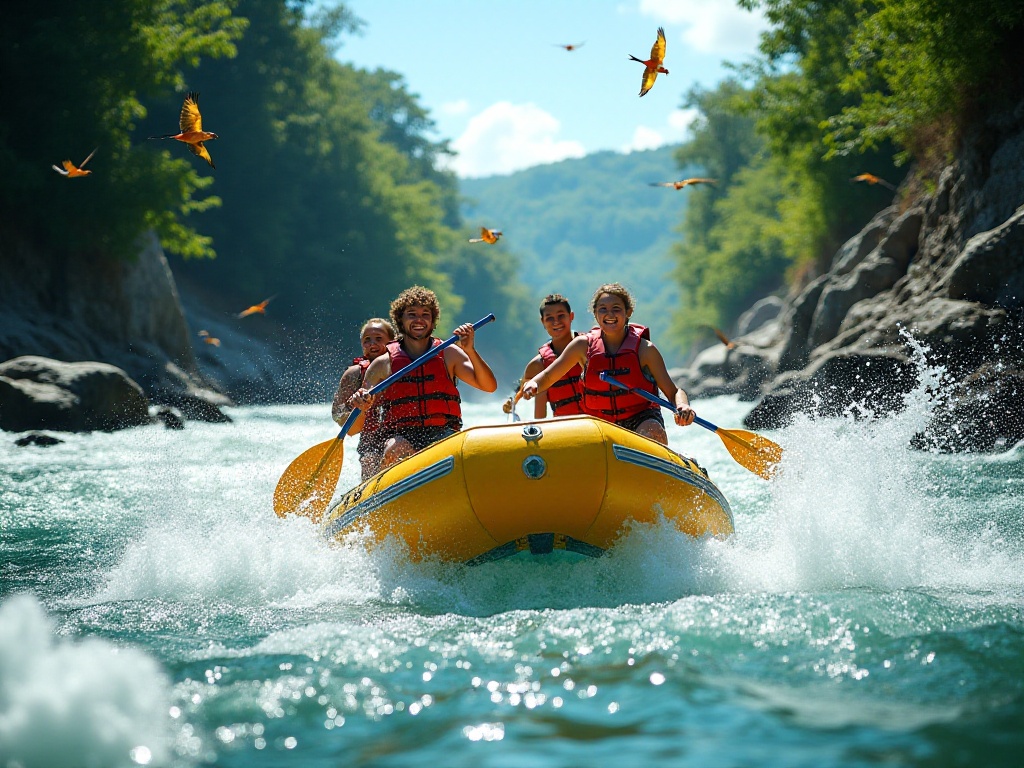
Customer Experience
Today's tourists are very focused on value for money. I've noticed small group tours becoming increasingly popular, usually limited to 10-15 people. This allows for stronger interaction and more flexible itineraries. During a recent food tour, we added an impromptu night tour of a local street food market based on everyone's wishes, which became the highlight of the entire trip.
Tourists ate and took photos while I explained the history and preparation methods of each snack. One auntie even learned how to make a local specialty snack on the spot, as happy as a child. These spontaneous activities often bring unexpected delights.
Interestingly, tourists of different age groups have very different needs. Young people like adventure and in-depth experiences, wanting to pack their itineraries full. When leading youth groups, I often recommend lesser-known attractions or arrange local special activities.
I remember taking a youth group to Yunnan where we participated in a local market. Everyone wore ethnic costumes, danced with locals, and learned to greet in minority languages. These deep experiences made the whole journey unique.
Adult leisure tourists focus more on comfort and relaxation, preferring to spend more time slowly savoring one place. They like to walk slowly through scenic areas, find quiet places to sit and contemplate, or chat with locals. Though this pace is slower, it allows people to truly experience the meaning of travel.
Elderly tour groups need more care and attention. We need to control walking distances, arrange more rest times, and ensure meals suit elderly tastes. I always pay special attention to weather changes, reminding everyone to adjust clothing appropriately to prevent colds.

Future Outlook
As independent travel becomes increasingly popular, many people think traditional group tours will gradually disappear. But I don't think so. Group tourism is developing towards more specialized and professional directions. For example, cultural exchange tours are becoming increasingly popular.
I recently saw some data: the number of domestic group tour participants in 2023 increased by 15% compared to 2019, with themed tours growing by 30%. What does this indicate? It shows that tourist demands are changing, and our industry is constantly evolving.
Many young people are starting to rediscover the value of group tours. They've found that a professional guide can not only provide richer cultural experiences but also help them save significant time in planning itineraries. Especially when visiting relatively unfamiliar destinations, having a guide familiar with local conditions can indeed make the journey more relaxed and enjoyable.
I think future group tourism will become more personalized and professional. We might see more themed tours targeting specific interests, such as food exploration tours, cultural study tours, outdoor adventure tours, etc. The role of guides will also become more diverse, beyond traditional narration and leadership to include cultural communicator, experience designer, and other multiple roles.
Technological development will also bring new possibilities to group tourism. Some travel agencies are already trying to use VR technology to let tourists "preview" attractions and smart wristbands to ensure group member safety. The application of these new technologies will make group tourism safer and more convenient.
As a post-90s tour guide, I look forward to seeing the future development of this industry. With each tour, I think about how to bring better experiences to tourists. Some might say being a tour guide is hard work, but I think helping others create beautiful memories makes this job very meaningful.
Actually, each tour is like a small society, with people of various personalities and unexpected situations. But it's these experiences that have taught me to better understand and accommodate them. Seeing tourists' satisfied smiles at the end of the journey and hearing them say "I want to book another tour with you" gives an irreplaceable sense of achievement.
What do you think group tourism will become in the future? Welcome to share your thoughts in the comments. If you also have any special travel experiences, please tell me. After all, everyone is a walking book, and we guides are helping everyone write exciting chapters in our own way.
In this fast-paced era, travel might be the best way to relieve stress. Whether group tours or independent travel, what's important is finding your own happiness during the journey. As a guide, I hope to continue using professionalism and enthusiasm to create unforgettable travel memories for more people. Let's look forward to a better tomorrow for the tourism industry!




